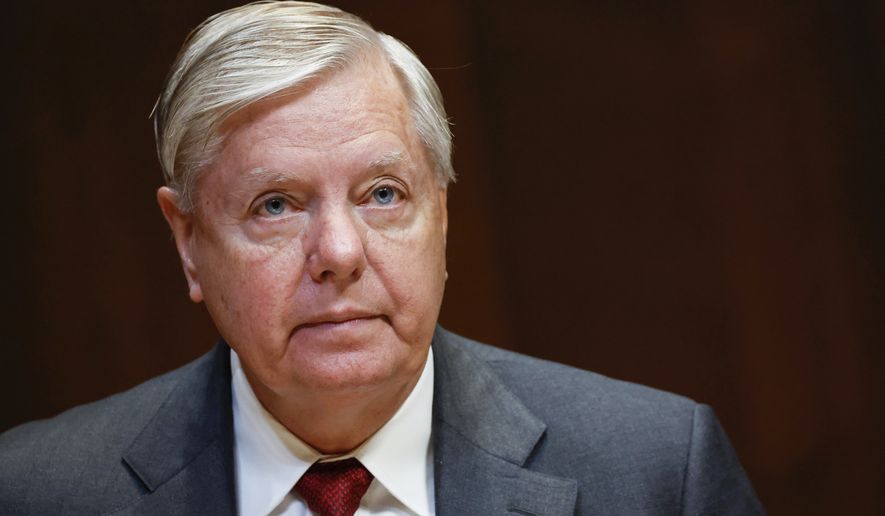COLUMBIA, S.C. — A federal judge on Thursday ruled that constitutional protections don’t shield U.S. Sen. Lindsey Graham from testifying before a special grand jury investigating possible illegal efforts to overturn then-President Donald Trump’s 2020 election loss in Georgia.
The ruling from U.S. District Judge Leigh Martin May rejected Graham’s argument that all his calls with Georgia’s secretary of state, Brad Raffensperger, were protected under the U.S. Constitution’s “speech or debate” clause, which shields members of Congress from questioning about official legislative acts.
She did, however, agree with lawyers for the South Carolina Republican that legislative protection applies to parts of the calls specifically pertinent to “Georgia’s then-existing election procedures and allegations of voter fraud in the leadup to his certification vote” — portions she noted were “legislative fact-finding.”
Despite the decision, continuing appeals in the case mean the senator’s appearance is not imminent. The ruling does push Graham — one of Trump’s top congressional allies and a key figure in the former president’s postelection activities — one step closer to testifying before the special grand jury empaneled this year by Fulton County District Attorney Fani Willis.
Willis has sought testimony from a number of other close Trump allies and advisers, including former White House Chief of Staff Mark Meadows, Trump-allied lawyer Sidney Powell and conservative lawyer L. Lin Wood Jr., who said this week he’s been told Willis wants him to appear.
On Wednesday, a judge ruled that Georgia Gov. Brian Kemp must testify, while agreeing with the Republican’s request to delay that appearance until after the Nov. 8 election. Kemp faces a rematch with Democrat Stacey Abrams.
Rudy Giuliani, the former New York mayor and Trump lawyer who’s been told he may face criminal charges in the investigation, testified in mid-August.
Graham has asked for a partial quashing of the subpoena, which had initially instructed him to appear before the special grand jury last month. The judge had previously rejected Graham’s attempts to challenge the subpoena, but an appeals court sent the matter back to May to decide whether the subpoena should be partially quashed or modified because of the constitutional protections.
Graham is already challenging his possible appearance with the 11th U.S. Circuit Court of Appeals, which will now consider his objections yet again, based on May’s order.
Prompted by a Jan. 2, 2021, phone call between Trump and Raffensperger, during which Trump suggested Raffensperger could “find” the votes needed to overturn his narrow loss in the state, Willis and her team have said they want to ask Graham about two phone calls they say he made to Raffensperger and his staff shortly after the 2020 general election.
During those calls, Graham asked about “reexamining certain absentee ballots cast in Georgia in order to explore the possibility of a more favorable outcome for former President Donald Trump,” Willis wrote in a petition seeking to compel his testimony.
Graham also “made reference to allegations of widespread voter fraud in the November 2020 election in Georgia, consistent with public statements made by known affiliates of the Trump Campaign,” she wrote. She said in a hearing last month that Graham may be able to provide insight into the extent of any coordinated efforts to influence the results.
Republican and Democratic state election officials across the country, courts and even Trump’s attorney general found there was no evidence of voter fraud sufficient to affect the outcome of the election.




Please read our comment policy before commenting.